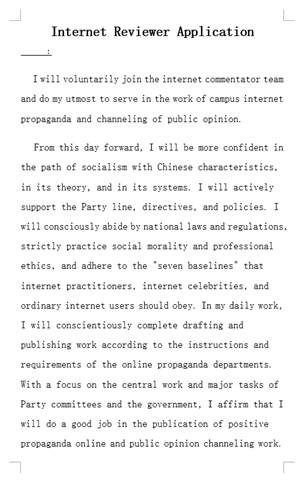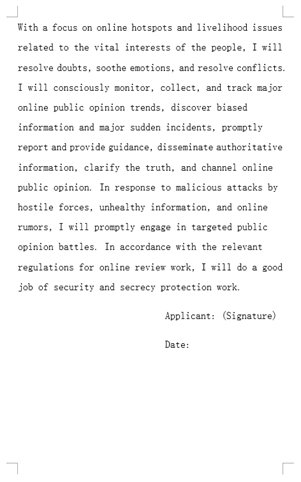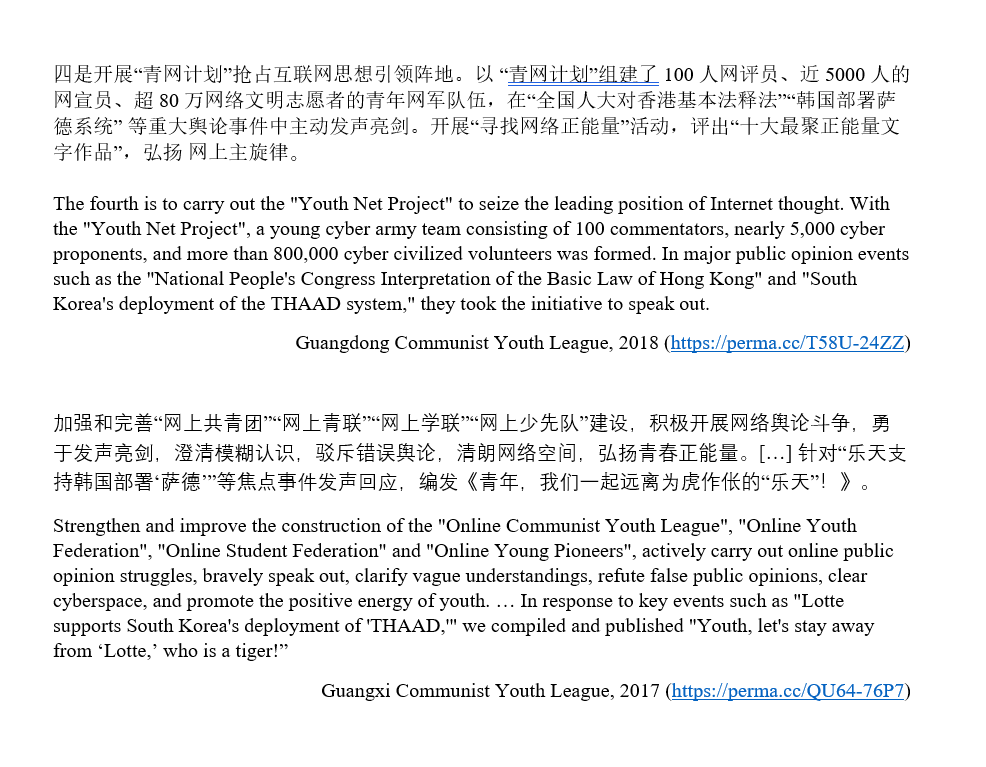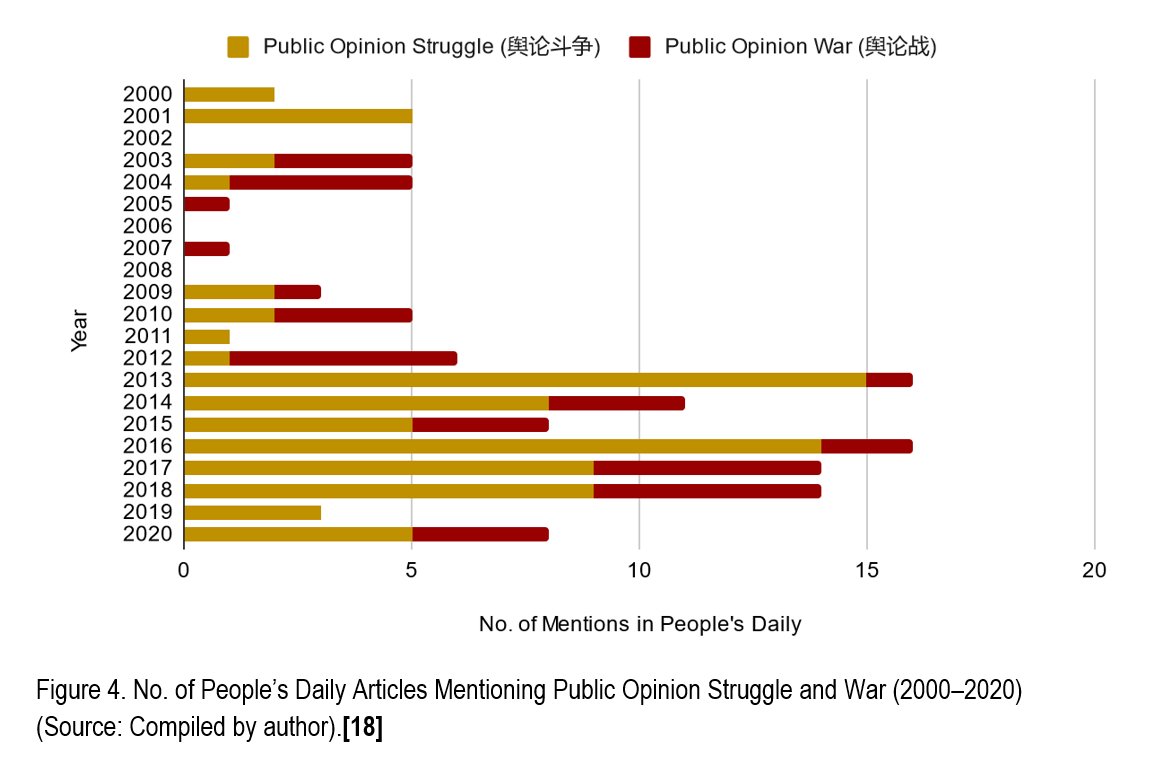In my latest for @ChinaBriefJT, I document how China& #39;s Communist Party raised an army of 22 million internet trolls—and how Beijing is wielding them as a weapon of foreign influence.
Here are the highlights (1/13):
https://jamestown.org/program/a-different-kind-of-army-the-militarization-of-chinas-internet-trolls/">https://jamestown.org/program/a...
Here are the highlights (1/13):
https://jamestown.org/program/a-different-kind-of-army-the-militarization-of-chinas-internet-trolls/">https://jamestown.org/program/a...
2/13 First we’ve got to talk about that number. It’s huge. Even larger than the 2 million trolls estimated in landmark 2013 & 2017 studies by @KingGary, @jenjpan, Margaret Roberts. How is this possible? https://gking.harvard.edu/50C ">https://gking.harvard.edu/50C"...
3/13 Well, the CCP runs a dual-track system of professionalized (paid) and “grassroots” (volunteer) internet trolls. This lets the Party harness and amplify the organic nationalism of some Chinese netizens while maintaining a loyal core, who handle "public opinion emergencies."
4/13 Specifically, the CCP draws on:
* 2 million paid web commentators (评论员) employed mainly by Cyberspace Affairs Commissions & Propaganda Departments, and
* 20 million unpaid, part-time "network civilization volunteers" (网络文明志愿者), managed by Communist Youth Leagues
* 2 million paid web commentators (评论员) employed mainly by Cyberspace Affairs Commissions & Propaganda Departments, and
* 20 million unpaid, part-time "network civilization volunteers" (网络文明志愿者), managed by Communist Youth Leagues
5/13 I used the public budget reports to show how CACs hire teams of online internet trolls in January.  https://abs.twimg.com/emoji/v2/... draggable="false" alt="👇" title="Rückhand Zeigefinger nach unten" aria-label="Emoji: Rückhand Zeigefinger nach unten">
https://abs.twimg.com/emoji/v2/... draggable="false" alt="👇" title="Rückhand Zeigefinger nach unten" aria-label="Emoji: Rückhand Zeigefinger nach unten">
But it’s the second group that’s most impactful. Many volunteers are college students, ~19 years old, asked to “refute rumors” part-time. https://twitter.com/RyanFedasiuk/status/1349366154872172544?s=20">https://twitter.com/RyanFedas...
But it’s the second group that’s most impactful. Many volunteers are college students, ~19 years old, asked to “refute rumors” part-time. https://twitter.com/RyanFedasiuk/status/1349366154872172544?s=20">https://twitter.com/RyanFedas...
6/13 More alarming is that CYLs describe volunteer trolls as a “young cyber army” and organize them into regimented command structures.
Volunteers pledge to wage “targeted public opinion battles” against ideological opponents—to defend China& #39;s "image sovereignty."
Volunteers pledge to wage “targeted public opinion battles” against ideological opponents—to defend China& #39;s "image sovereignty."
7/13 For the past month, we’ve witnessed Beijing’s outrage machine in action, as CCP-directed trolls attempt to shut foreign companies out of the Chinese market, harass researchers overseas, and pressure foreigners to parrot China& #39;s maritime claims. https://www.nytimes.com/2021/03/29/business/china-xinjiang-cotton-hm.html">https://www.nytimes.com/2021/03/2...
8/13 We know this activity is state-coordinated because Communist Youth Leagues *brag* about retaliating against foreign firms.
In 2017, they directed volunteer trolls to promote a boycott against Lotte Corporation after South Korea& #39;s decision to host THAAD missile defenses:
In 2017, they directed volunteer trolls to promote a boycott against Lotte Corporation after South Korea& #39;s decision to host THAAD missile defenses:
9/13 This point is really important, because 1) nearly any foreign firm doing business in China risks being targeted arbitrarily; and 2) the CCP can use trolls to inflict punitive economic measures—basically, politically motivated sanctions—with plausible deniability.
10/13 But considering its staggering capacity for information operations, the Party has been relatively restrained in deploying trolls against foreign social media platforms.
The focus is internal, most activity "organic," but state-initiated & funneled against specific targets.
The focus is internal, most activity "organic," but state-initiated & funneled against specific targets.
11/13 And when they have meddled abroad, the CCP’s trolls haven’t exactly been successful in swaying global opinion of China. In fact, @TwitterSafety countermeasures have spelled disaster for the Party’s propaganda apparatus. https://chinamediaproject.org/2021/01/18/chinas-telling-twitter-story/">https://chinamediaproject.org/2021/01/1...
12/13 Still, we should expect the CCP’s online influence operations to grow in size and sophistication, especially as the Party attaches more importance to fighting a global “public opinion war."
I fear we will look back on attacks against H&M and Vicky Xu as an opening salvo.
I fear we will look back on attacks against H&M and Vicky Xu as an opening salvo.
13/13 I’m grateful for valuable feedback from @LindsayPGorman, @MattSchrader_DC, @EtienneSoula, @emily_sw1, @Andrew_Imbrie, many @CSETGeorgetown colleagues, and of course Elizabeth Chen @ChinaBriefJT.
As always, my DMs are open for any questions about this project.
As always, my DMs are open for any questions about this project.

 Read on Twitter
Read on Twitter






